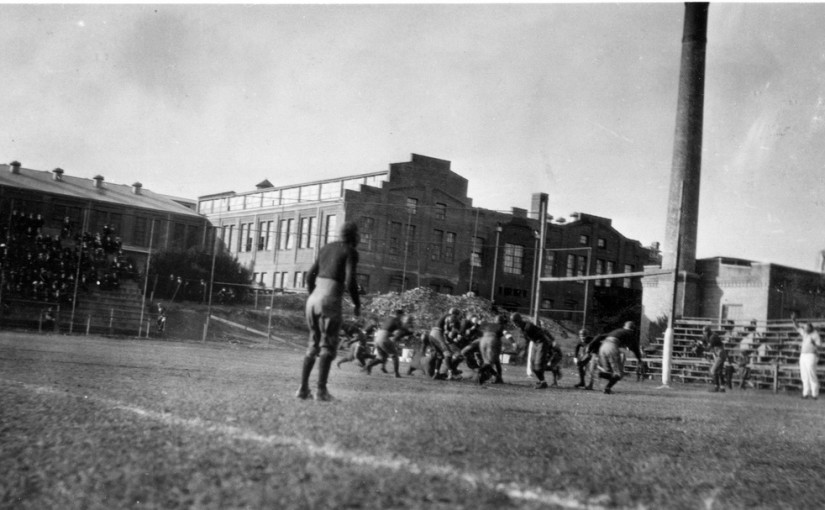With the 2013 college football season kicking off this weekend, I thought it’d be an opportune time to talk about Malcolm Gladwell’s motion to ban college football.
Wait. Ban college football?
Sounds crazy, right?
I know. I thought so too, at first.
In the United States of America, football has grown into something far more significant than sport and entertainment.
We devote our Friday’s to the local high school game, Saturdays to the alma mater, Sundays to the NFL (all of it), Monday nights to MNF and the weekdays in between to ESPN and our fantasy leagues.
It brings friends, family, classmates and colleagues together via Pop Warner practices, homecoming, pep rallies, tailgating, sports bars, bowl games and DIRECTV Sunday Ticket.
Football provides college scholarships, jobs, opportunities, camaraderie and life lessons in leadership, discipline and work ethic.
It generates a ton of money for a lot of people, charities, businesses and academic institutions.
The game is full of drama, spirit, super-human performances and captivating competition (unless you’re an Arizona Cardinals fan; then it’s just depressing. Zing!).
All good things, for the most part.
But then comes the buzzkill.
A high school student breaks his leg in the first game of the season.
A collegiate athlete lies motionless on the field after a big hit, waiting for the stretcher to arrive.
A former NFL star commits suicide due to depression – a result of brain trauma.
Or more recently, the NFL settles concussion lawsuits filed by 4,500 former players.
Football is an inherently violent game that leaves many of its participants injured, crippled and brain-damaged after their playing days are over. I don’t think anyone will argue against that.
It’s a sad side of the sport, and a risk that (I imagine) most players acknowledge when they decide to participate.
And that’s their prerogative.
But here’s Gladwell’s point (I’m paraphrasing): if universities function to develop young minds and promote innovative thought, how can they – in good conscience – allow a brain-damaging activity like football to be such a pillar of their institutions?
As a sports fan, alum of Arizona State University (a school with a big football program), and a Gladwell fan*, I found this topic fascinating.
And after watching the speech and debate below, I agree that football programs don’t belong at high schools or universities.
Yes, it’s a radical notion. And considering all the money the schools get from football programs, I doubt it will gain traction any time soon. Still, I’d vote for football to be severed from academia and partitioned to club, minor league and farm systems.
The two videos below present both sides of this interesting debate and I hope you enjoy them as much as I did.
They’re pretty long, but if you have an hour to spare over lunch or the weekend, I hope you watch them and let me know how you’d vote on the motion to ban college football.
How much proof do we need?
Malcolm Gladwell at University of Pennsylvania 2/14/2013 (1 hour):
Intelligence Squared Debate: Ban college football
Malcolm Gladwell and Buzz Bissinger vs Tim Green and Jason Whitlock (2 hours):
Some points that hit home, takeaways and more paraphrasing:
- Sometimes we must act without proof
- Tradition doesn’t justify foolishness
- People can connect, students can show school spirit and youth can learn discipline, leadership and teamwork without people getting their heads bashed in
- It’s all about the money. When a football coach has a (much) larger salary than the university president, it shows who’s in control, who’s generating revenue and where the school’s priorities lie.
*Full disclosure: I’m a big sports fan, but football isn’t a huge part of my life or upbringing. I didn’t play in high school, didn’t go to many games in college and most of my interaction with the sport these days comes in the form of my fantasy team, and catching a game or two on the weekends in social settings.
I’m also a big Gladwell fan. I read all three of his books, always look forward to his essays in The New Yorker and generally find his writing and viewpoints eye-opening and inspiring – both in terms of content and style. See my posts about Blink, Outliers and the value in social media. His first book, The Tipping Point was my favorite – not sure why I haven’t written about it yet.
Photo credit: Duke University Archives
